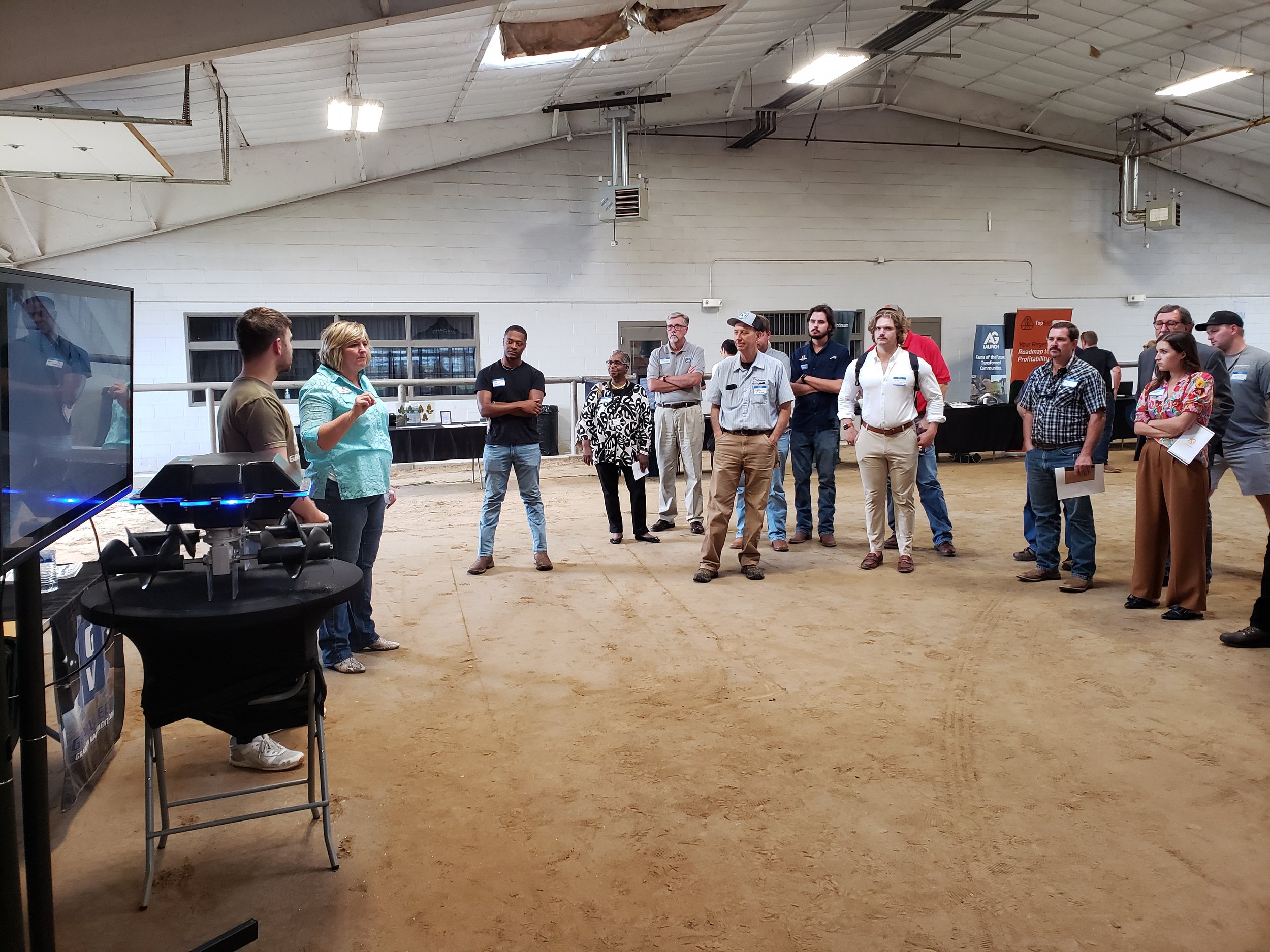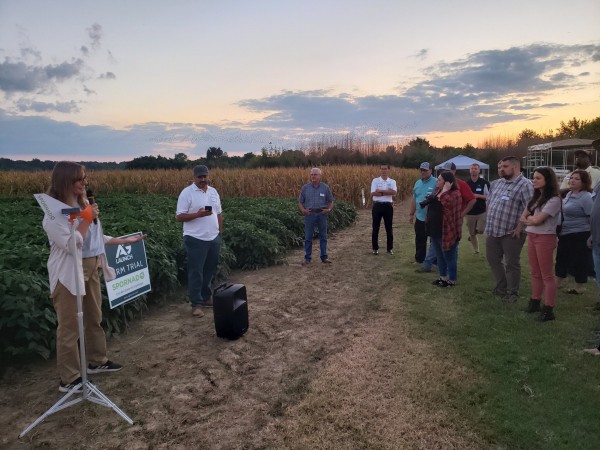NASA Acres News: Agtech Innovation Intermediaries and Sustainability Workshop
In early October, Dr. Steven Wolf, associate professor in the Cornell College of Agriculture and Life Sciences (CALS) and Research, Development, and Extension (RD&E) Partner of NASA Acres, hosted the Cornell Agtech Innovation Intermediaries and Sustainability Workshop. This two-day, interactive workshop convened a small yet diverse group of academics and practitioners, around 20 individuals from the United States, India, Chile, Germany, Netherlands, England, and Canada. The goal being to engage in a dynamic dialogue around what is known and what needs to be known to understand and strengthen agtech, namely venture capital-backed entrepreneurship applied to agriculture and food, in order to advance sustainable agrifood transitions.
This workshop is the result of a two-year seed grant from the Cornell Institute for Digital Agriculture that supported Wolf and his colleagues in studying six organizations that are engaged in developing conservation tools in agriculture. “We focus specifically on innovation intermediaries – incubators, accelerators, prize competitions and hands-on investors – positioned to support entrepreneurial ventures and integrate disparate components of systems of innovation,” said Dr. Wolf, “Our critical analysis of agtech innovation ecosystems is a strategic effort to mobilize innovation capabilities to conserve the resource base on which agriculture depends, halt biodiversity loss, reverse anthropogenic climate change, and contribute to producing greater equity in economic opportunities, health, and quality of life.” This workshop was built to celebrate and recap the accomplishments of this research and plot next steps after Wolf secured funding from NASA Acres earlier this year to extend and expand this research.
Historically, in the United States and around the world, technological development in agriculture has primarily relied on public money and public research infrastructure, like the land grant system and USDA-ARS. “In the last five to ten years, private finance capital has discovered agriculture technology (agtech) as an investable category and this has created a lot of excitement in the industry,” says Dr. Wolf. In 2021, agtech startup companies received a record breaking amount of capital flow, equivalent to 53.2 billion dollars. Dr. Wolf’s recent research has been motivated by the question: will this investment in entrepreneurship make positive contributions to sustainability transitions related to climate change, biodiversity, water resources, poverty alleviation, and public health?

The Workshop
The workshop dialogue was focused around a series of topics, the first being what do we know and what needs to be known to understand and strengthen agtech in order to advance sustainable transitions? Investors and innovation managers spoke to what they have learned in their professional work about what works, what is possible, and what is not practical in terms of delivery of sustainability through agtech. Sociologists and geographers studying agrifood systems contributed to the dialogue by situating the emergence of Silicon Valley styled “agtech innovation ecosystems” in historical context and highlighting friction between the logics governing financial investing and socioecological problem solving.
The second topic focused on innovation management, asking questions like: How can we do things better? How can we define, measure, and assess sustainability in more effective ways? How would bringing in new voices and new actors like farmers, environmental NGOs, consumers, and farm worker organizations change innovation dynamics and outputs? How can agtech innovation intermediaries (re)position themselves in relation to funders, investors, universities, public agencies and incumbent agribusinesses to strengthen a focus on sustainability?
The last topic was centered on exploring opportunities outside of the existing operating environment. This topic focused on questions of how different modes of funding, environmental change, new legislation, or changes in public attitudes and diets might change the amount of money going into agtech, expectations of investors, and the type of outputs that we see?
Looking forward, Wolf and his collaborators will form a steering group from the larger group of workshop participants to develop a funding proposal to support an Agtech and Sustainability Working Group. This will serve as a forum to support research, training, organizational benchmarking, and peer-to-peer learning. This group will also work to understand and strengthen how entrepreneurship and venture capital investment can complement public sector and corporate capabilities in agrifood research and development. “This emphasis on complementarities and synergies is core to the notion of ‘systems of innovation’,” says Dr. Wolf, “If our efforts strengthen such cross sectoral synergies, we will have made a contribution”.
What’s next with NASA Acres
Under NASA Acres, Dr. Wolf will advance critical analysis of how existing and emerging earth observation (EO) capabilities - and wider developments in digital agriculture innovation - support carbon governance in U.S. agriculture. Dr. Wolf says that a key element of this assessment will focus on measurement, monitoring, reporting, and verification (MMRV), with the idea being that one of the key stumbling blocks for aligning public policy, financial incentives and managers’ attention with carbon management goals is the quality and the cost of information. Digitization and remote sensing offer potential opportunities to reduce costs and bolster rigor of carbon accounting. These opportunities are fueling intense interest from scientists, entrepreneurs, and investors. There is rapid movement on the technological frontier and on the institutional frontier (e.g., corporate carbon reporting, carbon offsetting, carbon markets). Wolf’s research in NASA ACRES aims to understand how these dynamics shape one another and how to strengthen environmental policy and management.
Dr. Wolf says that technological innovation, private investment, public policy, and critical, sustained dialogue between academics and practitioners are four potent strategies for advancing sustainability in agriculture. This research draws these four processes together in promising ways, recognizing that business-as-usual is not an option.
This article was originally published by NASA Acres.
Main image: Attendees gathered at the Cornell Agtech Innovation Intermediaries and Sustainability Workshop in Ithaca, New York. Courtesy of NASA Acres.
Published on Wed, 12/13/2023 - 15:00


